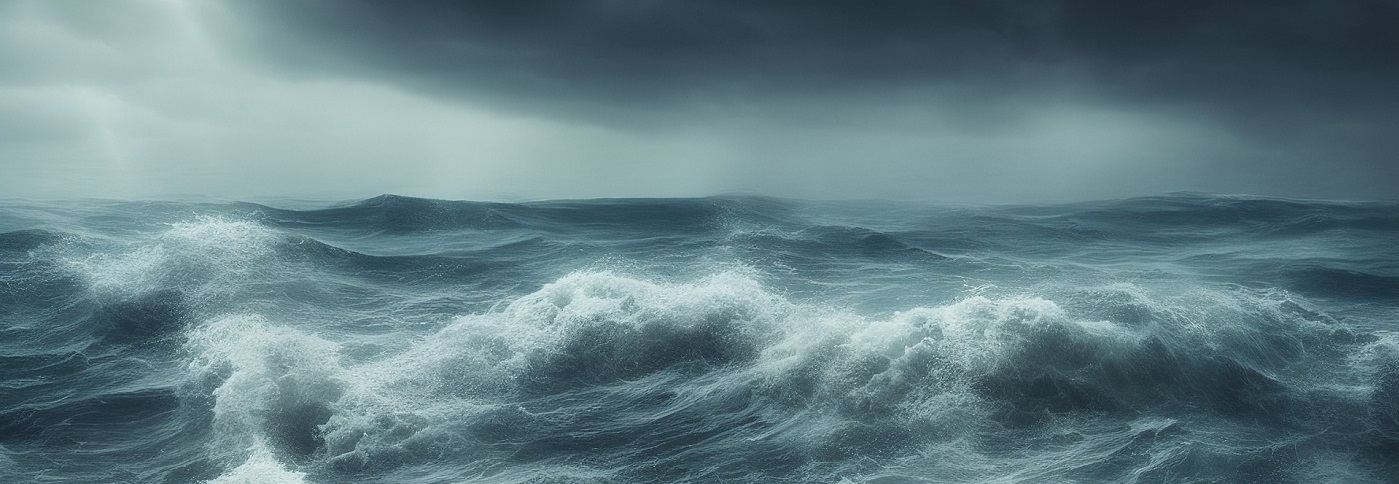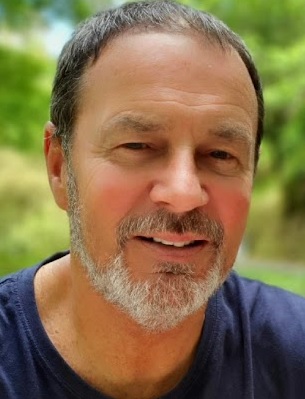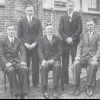
Photo: Pixabay.com
My dad’s favourite expression was, “worse things happen at sea”.
He, being a veteran of some of the worst horrors of the Second World War naval action, obviously used it to bring a little perspective whenever someone mentioned a minor calamity in everyday life.
Dad was a hard-working, practical man, growing tomatoes and other crops in all weather conditions, in tough times and in good. Baked into him was a humble honesty where he could see little reason to exaggerate or to make anything a big deal, unless it actually was.
His experiences during the war, particularly on the dangerous and tortuous Arctic convoys, shaped his values and attitude towards almost everything.
“Any war veteran who spends time at an RSA has probably not seen a real war,” I recall him saying. That now seems a bit harsh, but then his experiences were such that he personally needed no further reminder of military service.
I think of my dad again, these days, as our world is increasingly gripped by misinformation and downright lying in everything from politics to a chat in the pub. My father couldn’t abide people who told lies or even exaggerated something. If someone passed him some piece of scandalous gossip, he’d file it away and likely view the messenger as less reliable than the subject of alleged scandal. Particular disdain would be reserved for “blow-hards and cheats”. Often his descriptions were direct and colourful. For example when describing two people he refused to do business with, he said: “They’d both cut your throat. One would do it out the back door, while at least the other would do it at the front door.”
Fortunately he died well before the spectacle of social media and current American or British politics. There is little doubt he would not have been impressed, not that misinformation and cheating the truth is a new thing. What is new, in the instant digital world, is the ability to manufacture an untruth and spread it so widely and rapidly that any attempt to correct the misinformation is largely futile. Once a piece of misinformation is embedded in the heads of millions around the globe, it becomes an unstoppable cascade and the damage is done.
But, thinking again about my father and what it was about him that was different from those who deliberately lie begs an obvious question.
Isn’t the truth what we all strive for? Why does anyone tell a deliberate and damaging lie, such as that Covid vaccines cause infertility, when they don’t? Why do people in positions of power fib and why are there sometimes plenty of people only too willing to go along with it all?
Using falsehoods in business, say to promote a product or represent trading conditions to shareholders, is a crime. But in many areas of life, such as in politics, it’s a condition that can have few checks. In a democracy it can be a dangerous trend and, as we’ve seen in the United States, the misinformation drug is a distinct threat to democracy itself.
Culprit example No 1 is former president Donald Trump and the MAGA phenomenon. Trump is the antithesis of my father because his delusions include the notion that “facts” are for weak people, losers or pointy-head academics. Smart and strong people, like him, create their own reality and use it to win over others who would, themselves, also rather believe myths than bother with facts.
As we’ve seen throughout history, authoritarian regimes use lies and misinformation as a stock in trade. Which is why the rise of Donald Trump in the US is startling, but not so surprising.
Trump’s whole upbringing and business life has been about making things up. He no doubt grabs hold of actual facts when it suits him, but his success or otherwise is lubricated by manufacturing things to suit his ends. He is clearly intoxicated by his own importance and quest for power, and lying is necessary because the truth is unelectable for someone like Trump. From there, he can build support, eventually among millions of people who wind up as intoxicated by the falsehoods as Trump himself.
My father’s views on Trump would not be repeatable, but he would recognise the sham attractions of misinformation. He also knew that if people could be so self-serving and gullible, self-interest would eventually lead them to bad places and the lie would wither and fade. That’s why people like Trump always end up in the dustbin of history, after the damage is done.
The gardener who braved the Arctic
Just after midnight on 15 May 1942, Bill Carson, my father, stood on the deck of HMS Trinidad, boots smouldering from the heat of the deck plates as fires raged below. He and hundreds of others from the Royal Navy cruiser were waiting to be rescued by escorting destroyers; the survivors knowing that hatches had to be closed on many of their... Keep Reading
 You can contact Fraser here.
You can contact Fraser here.
Fraser Carson is the founding partner of Wellington-based Flightdec.com. Flightdec’s kaupapa is to challenge the status quo of the internet to give access to more reliable and valuable citizen generated content, and to improve connectivity and collaboration.
Flightdec websites include: KnowThis.nz, Issues.co.nz and Inhub.org.nz.
OTHER POSTS
LATEST POSTS
- The doctors and hospitals that shaped Ōtaki
- How out-of-work men cleared Hautere
- History milling around
- Medals tell a story spanning the world
- Money for the expressway – for whom does the bell toll?
- Claimants lament loss of Rangiuru Pā
- Medal for Roy after nuclear test service
- Ōtaki-Māori Racing Club ‘focused on mana and mauri’
- If you’re not there you won’t know what’s going on
- From whaler cottages to Airbnbs
- Vault opens door to local history
- Fear breeding fear, fear and more fear
- Oddities beneath the floorboards
- Tales of a winning cricket team
- Poor official communications fuel misinformation
- Cultural infrastructure could be our saviour
- Four-storey blocks coming as developments fast-tracked
- The world’s therapist offers little hope for global ills
- Modern conservatism the quiet killer
- However bad it might get, keep smiling

